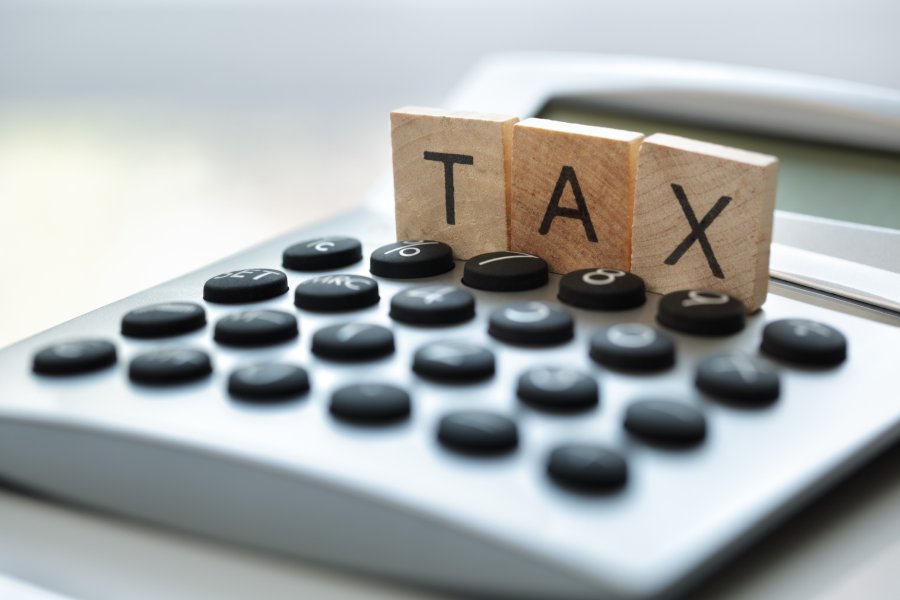
NFU Mutual has picked six things for farmers and rural businesses to watch out for in the Chancellor's upcoming spring budget on 6 March.
Certainty over inheritance tax and Environmental Land Management schemes (ELMs) is one of those six, according to Sean McCann, chartered financial planner at NFU Mutual.
“Farmers will be hoping for overdue clarity around the application of Agricultural Property Relief alongside the government’s ELMs," he said.
Agricultural Property Relief can reduce or eliminate the inheritance tax liability on agricultural land.
A key requirement is that the land is occupied for agriculture. Some of the schemes proposed under ELMs require land to be withdrawn from agricultural production which could mean the loss of relief and lead to larger inheritance tax bills.
Mr McCann said: “Confirmation that land used for ELMs still qualify for APR is crucial – otherwise it will discourage farmers from taking part in the Government’s schemes if they risk a future tax bill.”
More money in the pockets of workers
Mr McCann explained that two years ago, Prime Minister Rishi Sunak promised to reduce the basic rate of income tax from 20% to 19%.
However, that would be an expensive move for a government keen to balance the books without fuelling inflation.
He said: “Another cut to National Insurance contributions is potentially more likely because it is both cheaper for the government and rewards those in employment, so it can be billed as a boost for growth and productivity.
‘’A cut to Income tax would be more expensive as it would apply to savings interest and rental income as well as earnings, making it harder for the Chancellor to present it purely as a measure to boost productivity.
“Employee’s National Insurance was cut from 12% to 10% in January, and shaving another one or 2% off it this spring could be on the cards.”
Thawing the 15-year freeze on inheritance tax
Mr McCann said inheritance tax is one of the most feared taxes, so making changes in an election year could be a potential vote winner.
“The government are unlikely to abolish it completely, but they could increase the tax-free allowance that has been frozen at £325,000 for the last 15 years," he explained.
During this time property and investment values have rocketed, dragging an increasing number of families into the inheritance tax net.
Had the £325,000 allowance kept pace with inflation it would now be worth almost £500,000.
He added: “Similarly, had the residence nil rate band, that allows you to pass on up to £175,000 of the value of your home to your children or grandchildren, kept pace with inflation it would now be worth more than £200,000.
"This would mean a couple could pass on up to £1.4m free of inheritance tax. Increasing the tax-free amounts is likely to go down well with middle-class voters.”
Reforming the divisive High Income Child Benefit Tax
Mr McCann explained that when the High-Income Child Benefit Tax was introduced over a decade ago, the £50,000 threshold was deemed a high income.
He said: “Eleven years later wage growth has dragged more and more families into this tax which is widely misunderstood and viewed by many as inherently unfair.
“The tax is levied on the highest earner in the household, for every £100 of income over £50,000 they must repay 1% of the child benefit received, at £60,000 they must repay the full amount. If claiming for two children, this would amount to £2,075.
“If the £50,000 threshold was uprated with inflation, it would now be £66,728. The Chancellor could ease the burden on squeezed families by finally increasing this long-frozen threshold.
“He could also fix the perceived unfairness of the tax. Currently two parents with income of £49,000 each would escape the tax whereas a sole earner in a household with an income of more than £50,000 would be caught.
"Assessing the tax on total household income would help address this divisive aspect of the tax," he said.
Tweaking the Personal Savings Allowance
One of the by-products of higher interest rates has been increased tax bills for many savers, according to Mr McCann.
“The personal savings allowance of £1,000 for basic rate taxpayers and £500 for higher rate taxpayers has been frozen for eight years which means more and more people are now paying tax on the interest from their savings.
“Had these tax-free allowances kept pace with inflation they would now be worth more than £1,300 and £650 respectively.
“Restoring the value of the tax-free savings allowance would benefit the many older voters who rely on savings interest to supplement their income.”
Cut Employers’ National Insurance
If the Chancellor wants to be bold in his statement, cutting Employers’ National Insurance would send a positive message to businesses, Mr McCann said.
Employers’ National Insurance is viewed by many businesses as a tax on employment. The current rate stands at 13.8% on all earnings over £123 per week, in most cases.
“Jeremy Hunt cut national insurance rates for both employees and the self-employed in his autumn statement, but left the rate paid by employers untouched," he said.
"Although it would be expensive, reducing the rate could incentivise growth for employers."
